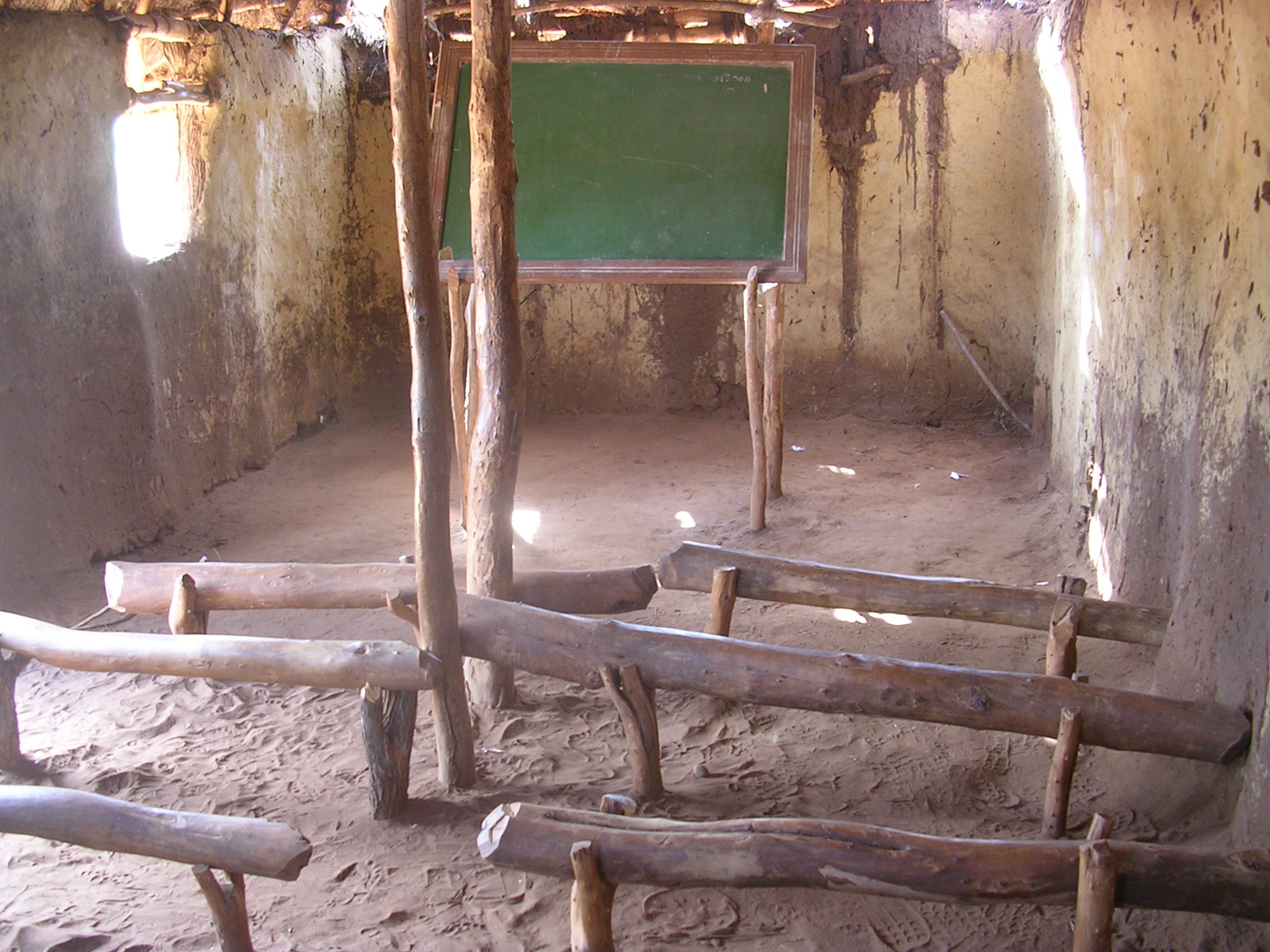School.
The school in the village of Nanguene before resettlement. This photo was taken by a resident of the village in 2008
Inside the school in Nanguene before resettlement
School, and literacy, is important for the youth of any rural community. From the outside, it seems that resettlement could only be positive for the schooling of the resettled children. It is not difficult to come to this conclusion with one look at the original school of Nanguene. Nanguene did not have any school at all until the leader of the village requested a teacher from the local administration and the residents of the village built their own school. There was one teacher for all of the children who simultaneously attended classes of different age groups. It was completely inviable for children to go to secondary school.
Primary school in the host village (after resettlement)
Contrary to first impressions, however, school was not at all a simple plus, in the case of Nanguene. The school in the resettlement site was much larger, the infrastructure was more comfortable, and there was a teacher for each class. Furthermore, it was possible to attend secondary school in the village of Massinger. However, because livestock was not secure in the new location, young boys had to accompany them to pasture and could not go to school. This means that one, and sometimes two boys per family could not study.
Going to secondary school was possible, but it required financial commitment. Families had to pay for transport to the village of Massingir every day or room and board away from their homestead, books, and indirectly, the loss of labor in the household. Girls that were chosen to go to school were exposed to prostitution and unwanted pregnancy.


